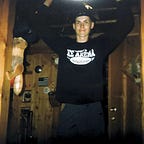Chicago real estate struggles to stay afloat during the Corona crisis.
By Tom Radziszewski and Brian Zuniga
Chicago real estate struggles to stay afloat during the Corona crisis.
By Tom Radziszewski and Brian Zuniga
The real estate in the Chicago land area is on a constant up and down battle struggling to hold steady. The pandemic that took place a year ago today not only affected the number of closings but also impacted hundreds of students in the Chicago area. Many students are working to be able to afford apartments and with the need for work decreasing in businesses, the students are left empty handed with no work or money. Impacts are shown on both extreme sides of the spectrum(poor/wealthy). Individuals located in wealthier areas such as Highland Park and Burr Ridge are struggling to sell property for what it is worth considering their homes and property will be posted and appraised for nearly half of what the properties were worth years before the pandemic hit. Whereas the other extreme side of the spectrum struggles to find work to pay landlords rent in order for them to still live in homes they’re renting. Michael Kaplan, a realtor who specializes in finding property for college students attending Depaul located on the north side of the city says in an interview, “times were hard but were still in murky waters. The demand for homes is very low with the universities becoming online”. I took it upon myself to ask college students who live near campus about their thoughts of school being online and how their lives have changed with having to leave work, but still pay rent. Patryk R, a working student at Depaul university who lives in a four-person apartment says, “When the pandemic started it was chaos between us four roommates and all of our families. We did not want to go see our parents because who knew if we were exposed to the virus during the time. Also, all three of my roommates were put on work leave which later caused all of us to worry about paying our shares of the apartment, but thankfully our parents were able to put us back on our feet until our work began to offer a “work from home” method. According to Michael Kaplan thousands and thousands of families and individuals are not able to keep up with rent even with the help of the IDES stimulus package. Michael goes on to say, “I dropped out of school to pursue my dream job of selling homes and that got taken from me during this pandemic. I was able to rely on myself to pay the bills and put food on my plate, but when the pandemic started, I was forced to stay inside and with my work being commission based I wasn’t making a single dollar”.
Real Estate Trends In Chicago
The demand for homes will continually grow over time and those who can afford homes during the time being are in luck according to Michael Kaplan, “individuals are typically getting away with asking three to seven percent below selling price of a home, which in their case is a better deal considering some individuals are not able to get their homes off the market”. The chart below informs readers on where the real estate is and was good during the pandemic. As noticed the neighborhoods listed in the chart below are typically very wealthy and those individuals buying and selling homes had less of an issue considering all five towns are nice neighborhoods with a lot of demand for people to move there.
Corona Virus Impact on homeowners
In the interview that was done with Michael Kaplan he states, “it’s quite shocking how badly the pandemic affected lower income families compared to individuals who are wealthier. I also believe that during the pandemic, individuals shared different mindsets. For individuals who are on a lower income stream I would say they’re worrying to stay afloat and on top of rent whereas higher income individuals are looking to buy low and sell high”. This grabbed my attention which later than I found statistics on website named Illinois Policy which proved that of those individuals who are earning zero to forty thousand a year, thirty six percent have lost their job whereas individuals earning seventy thousand only nine percent lost their job.
The chart above describes what the real estate market looked like years prior to the pandemic. As the graph shows, dips became much steeper throughout the years starting in 2019. The market is always on a up and down trend but as the pandemic progressed the lines became steeper and more frequent. Fast forward a year from when the pandemic started and very noticeable growth has been made, the market is up and the demand for individuals to move into the city is up. Michael Kaplan goes on to say, “Depaul University came out to say that If the individual has gotten the vaccine, they’re allowed to resume in person class the start of next year. This is good for me and other realtors considering our main stream of income is students looking to rent apartments to be closer to campus”. After the market being on a downhill trend things are looking better now. The more places that are reopening allowing workers to come back to work opens a market for individuals to buy/rent office space property.
Sources:
Bryce Hill Senior Research Analyst / Jobs + Growth by Bryce Hill February 19, et al. “Illinois’ Poorest Hit Hardest by COVID-19 Job Loss, Many Still Unemployed.” Illinois Policy, 25 Feb. 2021, www.illinoispolicy.org/illinois-poorest-hit-hardest-by-covid-19-job-loss-many-still-unemployed/.
Michael Kaplan: Northside Realtor
